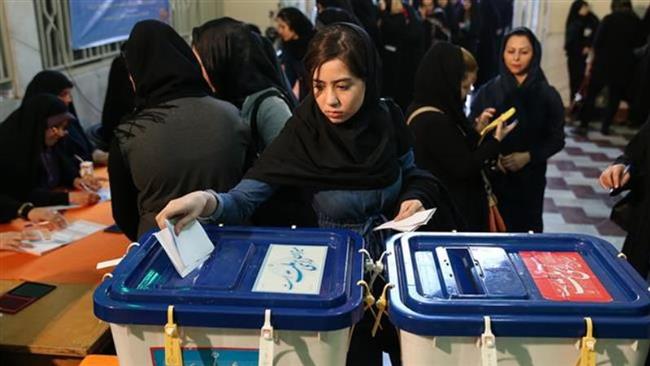-
Tips for becoming a good boxer - November 6, 2020
-
7 expert tips for making your hens night a memorable one - November 6, 2020
-
5 reasons to host your Christmas party on a cruise boat - November 6, 2020
-
What to do when you’re charged with a crime - November 6, 2020
-
Should you get one or multiple dogs? Here’s all you need to know - November 3, 2020
-
A Guide: How to Build Your Very Own Magic Mirror - February 14, 2019
-
Our Top Inspirational Baseball Stars - November 24, 2018
-
Five Tech Tools That Will Help You Turn Your Blog into a Business - November 24, 2018
-
How to Indulge on Vacation without Expanding Your Waist - November 9, 2018
-
5 Strategies for Businesses to Appeal to Today’s Increasingly Mobile-Crazed Customers - November 9, 2018
The pace of change will be slow in post-election Iran
Reformist allies of moderate President Hassan Rouhani won all 30 parliamentary seats in the Iranian capital, a major boost Sunday that pushed them into a nation-wide lead in crucial elections.
Advertisement
There was also good news for Rouhani and his key ally Ayatollah Akbar Hashemi Rafsanjani in the second election Iranians voted in on Friday, for the powerful Assembly of Experts, 88 clerics who monitor the work of supreme leader Ayatollah Ali Khamenei. The only hardliner who won a seat in the capital was Ahmad Jannati.
Hardliners, who opposed the deal halting Iran’s development of nuclear weaponry in exchange for lifting sanctions that had hobbled the country’s economy, won 68 seats in parliament, down from the more than 100 in the current parliament.
Final results released by the Interior Ministry and broadcast on state TV show that reformists, who favor expanded social freedoms and engagement with the West, won at least 85 seats.
“So far the reformists have been the winners, and the results in Tehran signal people’s dissatisfaction with the conservatives”, Rohollah Faghihi, a Tehran-based political analyst and journalist, said.
Election officials count ballot papers after the close of polling stations during elections for the parliament and a leadership body called the Assembly of Experts, which has the power to appoint and dismiss the supreme leader, in Tehran February 26, 2016. Khamenei is 76 years old and underwent prostate surgery in 2014, raising concerns about his health. Some of the 15 elected in Tehran were in both conservative and reformist electoral lists.
However 60 constituencies had no clear victor, meaning a second round run-off will be needed in a field that has more conservatives than reformists and moderates.
Supreme Leader Khamenei himself limited his comments on the election to praise for the high turnout, which stood at roughly 62 percent of eligible voters. The outcome seemed to bolster the Obama administration’s conviction that the nuclear deal with Tehran could signal a path toward moderation and improved relations with the U.S.
Results from other cities also had conservatives losing seats, but they continued to enjoy strong support in rural areas.
Also, it can not be said with certainty if the so-called elected reformists close to the president will be able to make a significant difference since a lot of hot-button issues, such as women’s rights and human rights in general, have remained the same, if not worsened, over the past three years under Rouhani.
But analysts said the election results were also driven by domestic factors, including lingering anger at President Mahmoud Ahmadinejad, Rouhani’s hard-line predecessor. Mehdi Mohammadi, a former adviser to hard-line former nuclear negotiator Saeed Jalili, conceded that these elections were a blow to conservatives in Tehran. There is still a chance that the parliamentary pendulum could swing toward the center of the political spectrum and result in a legislature friendlier to the president than the current one.
One of the main reasons behind the decision is that the security of the new systems planned to be used for electronic elections was not confirmed by related authorities, he said at the time.
And that’s true. Iran is still ruled by an incredibly repressive regime that, for example, jails political opponents, supports terrorism, and prevents reformist candidates from participating.
Advertisement
This election is not the first time reformists have come to power in Iran.





























